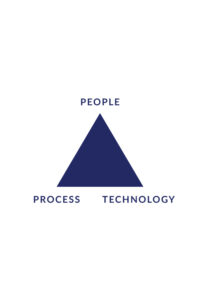 Covid and remote work have created new challenges for accounting departments. Business owners have come face to face with questions of timely reporting, efficiency and the biggest one of them all controls. In the face of changing work environment how do you ensure that the financials are accurate and that assets are secure? How do you fight fraud and help create an efficient system at the same time?
Covid and remote work have created new challenges for accounting departments. Business owners have come face to face with questions of timely reporting, efficiency and the biggest one of them all controls. In the face of changing work environment how do you ensure that the financials are accurate and that assets are secure? How do you fight fraud and help create an efficient system at the same time?
Finding efficiencies in accounting is about finding that perfect triangle of maximizing staff time, maintaining a strong accounting process, and employing successful technology. It’s a task we examine in Client Advisory Services (CAS) every day.
On a client implementation last year, our CAS team stepped in to assume controller responsibilities and provide back-office accounting services for a Non-Profit Foundation. The client complained that with their remote staff, it was hard to get bills processed timely…. not to mention the tracking of mail, proper approvals of expenditures, and the chasing down of signatures on checks as other concerns. Frankly, it’s a story we hear often post-Covid. Did I mention that most fraud schemes involve fraudulent disbursements?
To create efficiency in the disbursement process we implemented BILL, a cloud-based A/P software. Our team uses this software to automate the A/P process from end to end. Invoices can be received electronically from vendors or scanned to a digital inbox. Data recognition helps with the creation of a new bill which can be routed electronically for approval as well as track comments within the actual bill itself. Once approved, the bill can be paid via check or ACH. Bills are synced to the accounting system so while the approvals are processing, the accounting ledgers stay up to date. This technology saves time on duplicate data entry and reduces the chance of manual entry errors. Additionally, we found that having a digital A/P Workflow also allowed for a greater segregation of duties, which is a powerful tool to mitigate fraud in accounting.
In this scenario, the intersection of people, process, and technology made for a happy client. When the technology works as expected, the accounting professionals who use it can extract insights from the data. With the automation, analysis, visualization, and other advanced capabilities built into these accounting technologies, the accounting staff can be insightful, strategic, and tactical rather than data processors.
I know these efficiencies can be found in other areas. To find them, you must first understand the process clearly, document the steps taken, and then find where you can insert a technology component that either automates it or eliminates manual steps completely. I like to think of the use of technology in accounting as this simple image… It’s like you walked into the IKEA display warehouse and got to jump from the opening escalator to the checkout line without getting lost in the maze of furniture in between.
Frequently Asked Questions
How can small businesses implement remote work-friendly accounting practices without breaking the bank?
Small businesses can start by consulting with a local accounting firm for financial advisory on affordable cloud-based accounting software. Implement free or low-cost communication tools and gradually adopt digital processes for invoicing and expense tracking. Many Pasadena-based accounting services offer guidance on cost-effective solutions for remote work.
What security measures do Pasadena accounting firms recommend to protect financial data when employees work remotely?
Pasadena accounting firms often recommend using virtual private networks (VPNs), implementing multi-factor authentication, encrypting sensitive data, regularly updating software, and providing cybersecurity training to employees. It’s also crucial to have a clear data handling policy for remote workers, tailored to California’s data protection laws.
What are the best practices for training new accounting staff remotely?
Create comprehensive digital training materials including video tutorials, written guides, and interactive modules. Use screen-sharing tools for live demonstrations, schedule regular check-ins, and assign a mentor to each new hire. Pasadena accounting firms often offer specialized training programs tailored to local business needs.
What common pitfalls should businesses avoid when transitioning to cloud-based accounting software?
Common pitfalls include inadequate staff training, poor data migration planning, neglecting to review and update internal processes, and failing to properly secure the new system. Pasadena accounting services can provide valuable insights on smooth transitions and ensuring compliance with local regulations.
What are effective ways for businesses to monitor employee productivity in a remote accounting environment?
Focus on output rather than hours worked. Set clear goals and deadlines, use project management tools to track progress, and have regular check-ins. Many Pasadena financial advisory services can help develop strategies for managing remote teams effectively.


